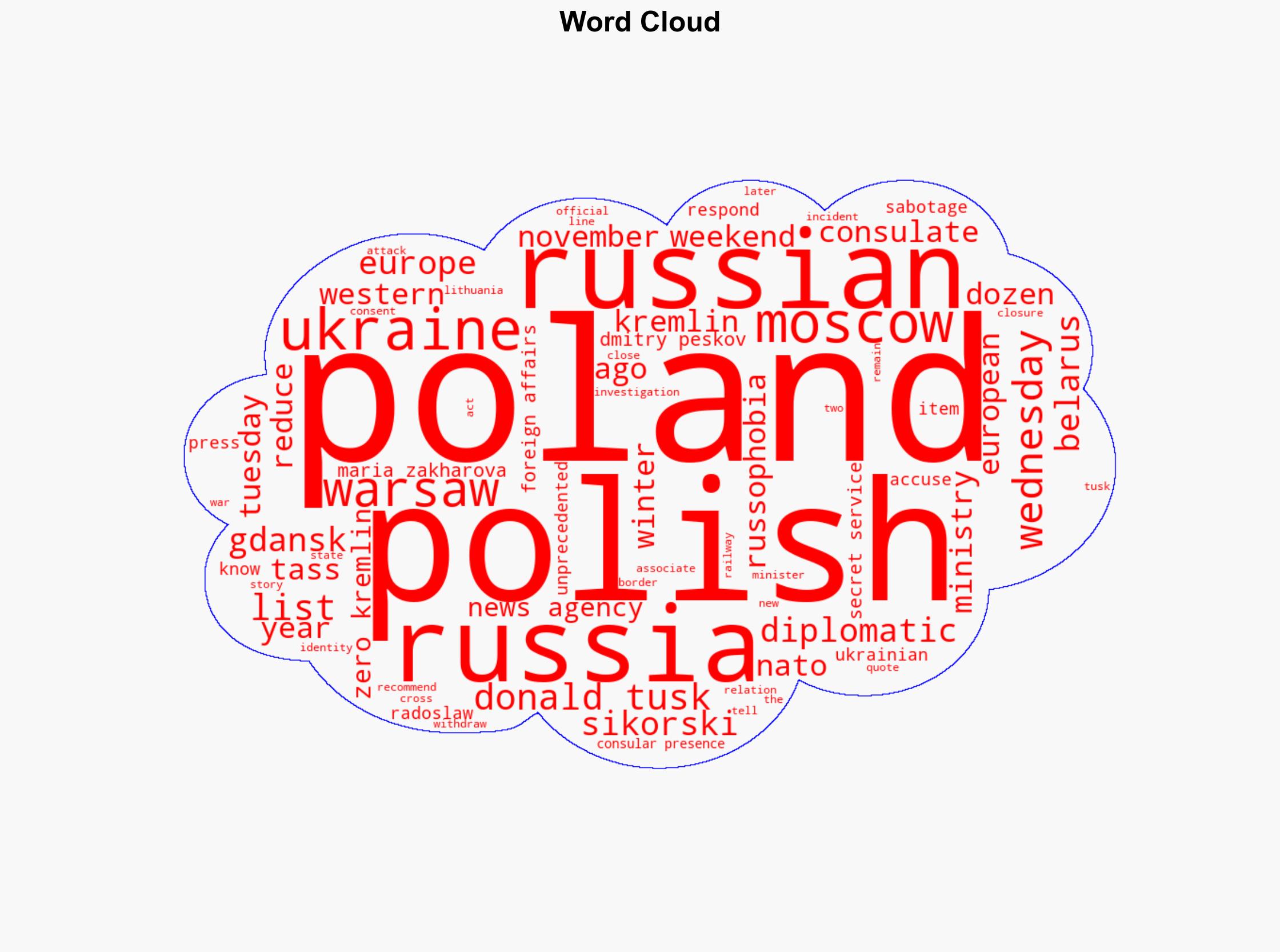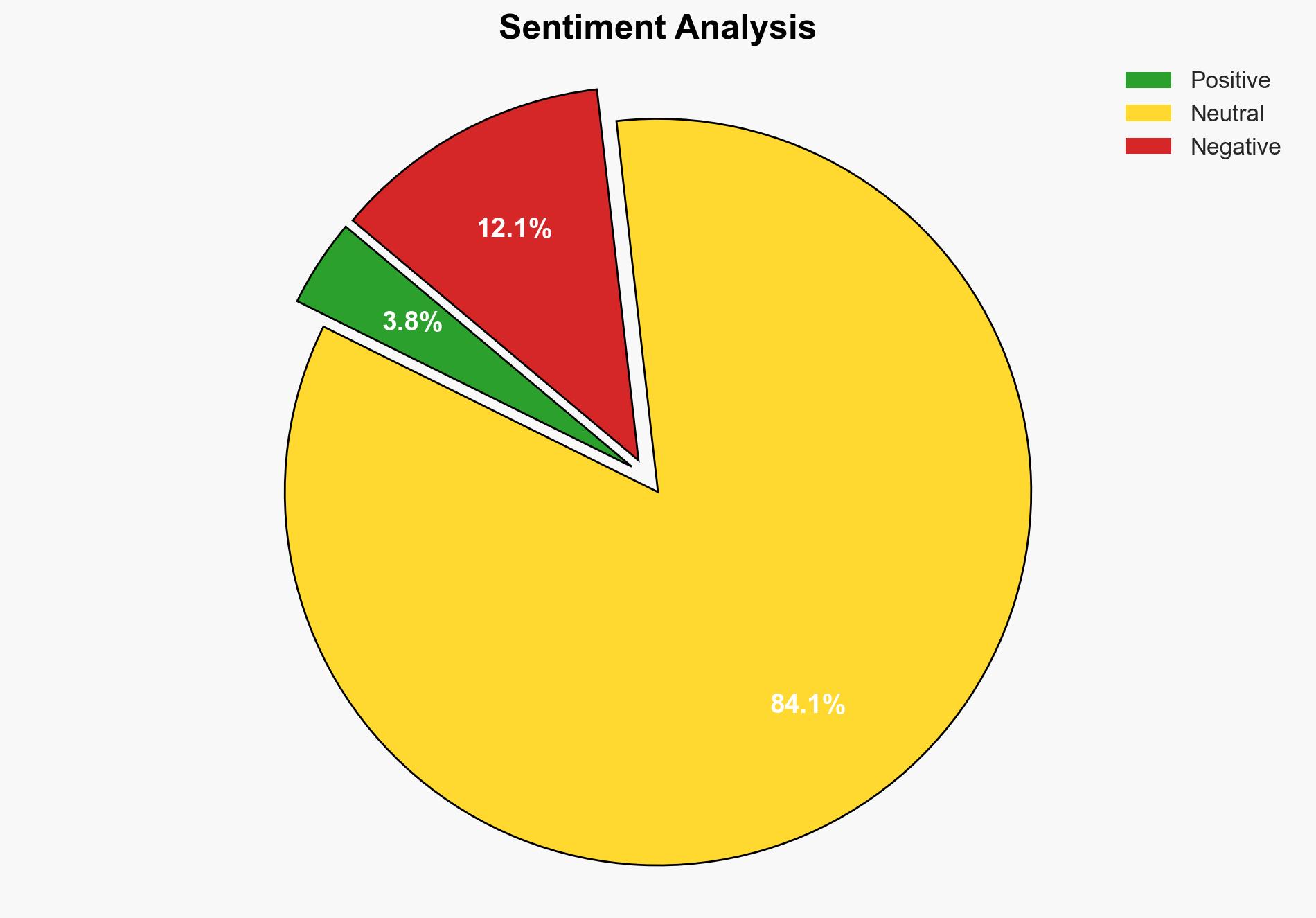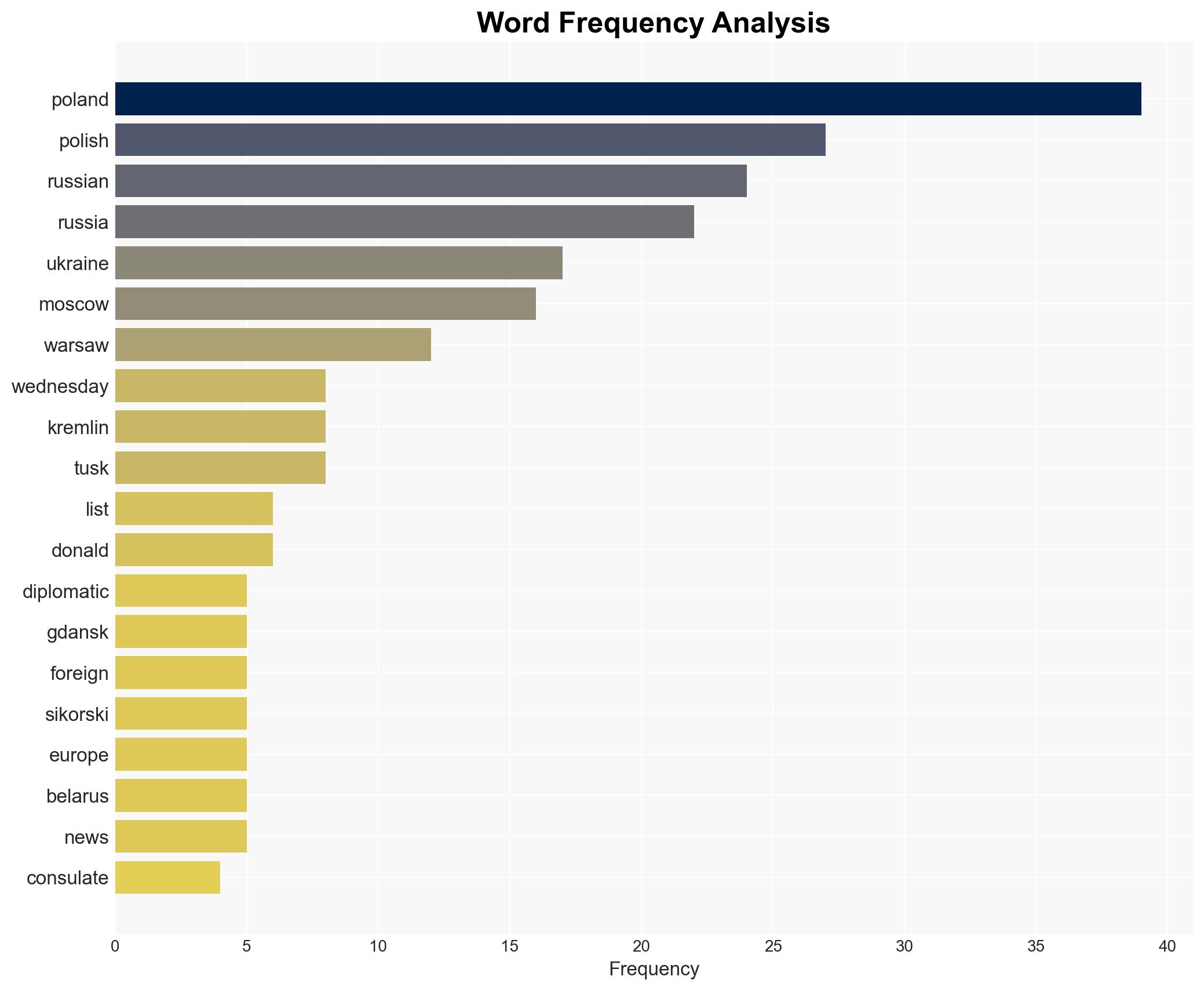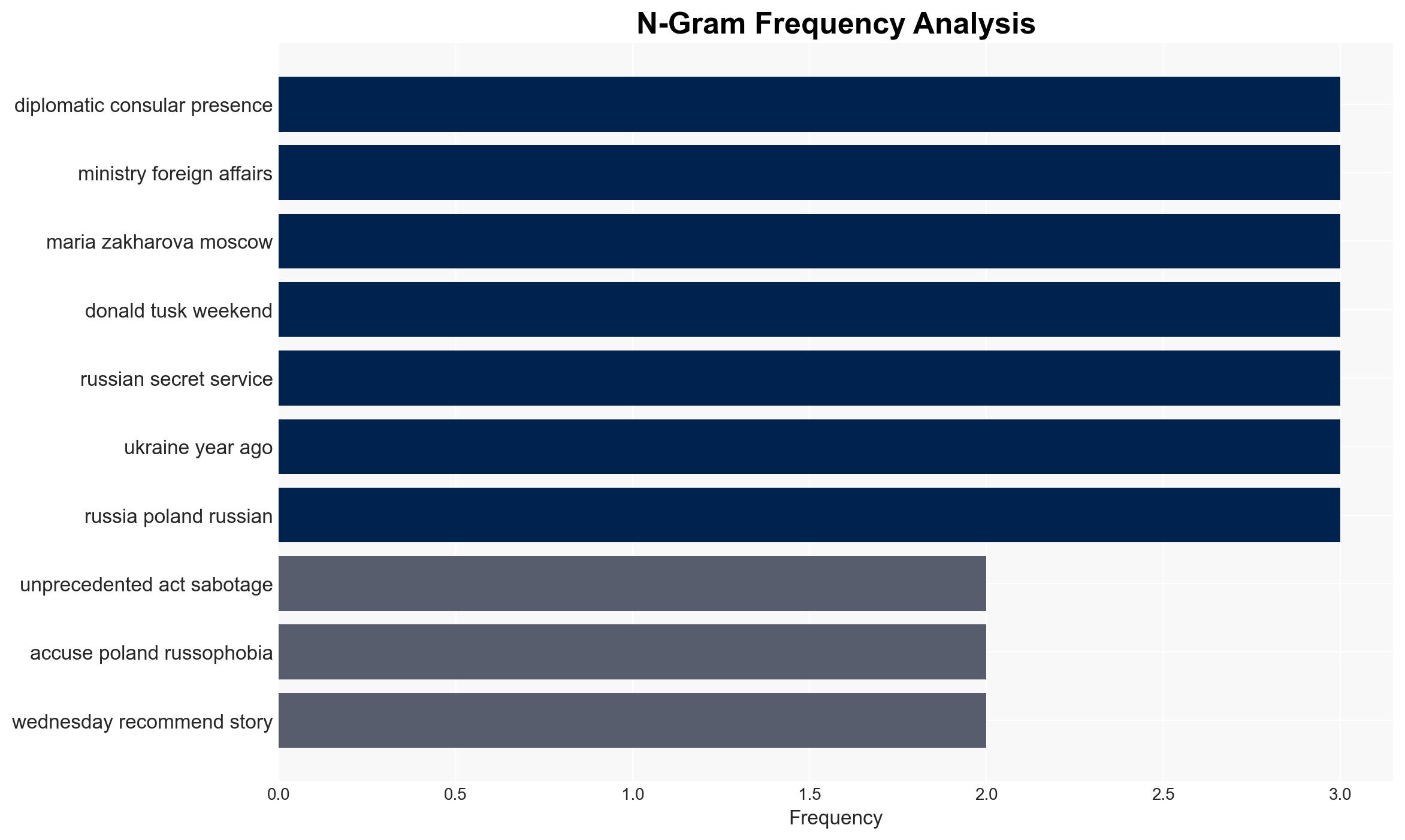Poland to close last Russian consulate over unprecedented act of sabotage – Al Jazeera English
Published on: 2025-11-19
AI-powered OSINT brief from verified open sources. Automated NLP signal extraction with human verification. See our Methodology and Why WorldWideWatchers.
Intelligence Report:
1. BLUF (Bottom Line Up Front)
The most supported hypothesis is that the closure of the Russian consulate in Gdansk by Poland is a strategic move in response to perceived Russian sabotage activities, aiming to reduce Russian influence and retaliate against hostile actions. Confidence Level: Moderate. Recommended action includes strengthening diplomatic ties with NATO allies and enhancing internal security measures.
2. Competing Hypotheses
Hypothesis 1: Poland’s decision to close the Russian consulate is a direct response to confirmed Russian involvement in sabotage activities targeting Polish infrastructure, specifically the railway line to Ukraine. This hypothesis is supported by Poland’s accusations and the ongoing investigation linking Russian secret services to the incident.
Hypothesis 2: The closure is a preemptive diplomatic maneuver by Poland to reduce Russian influence and presence within its borders, leveraging the sabotage incident as justification. This hypothesis considers Poland’s broader strategic goal of aligning more closely with NATO and reducing potential espionage threats.
Hypothesis 1 is more likely due to the direct accusations and evidence presented by Polish authorities linking Russian operatives to the sabotage incident.
3. Key Assumptions and Red Flags
Assumptions include the credibility of Polish intelligence linking Russia to the sabotage and the assumption that the closure will effectively reduce Russian influence. Red flags include potential bias in Polish reporting and the possibility of Russian disinformation campaigns to obscure their involvement. Deception indicators could involve Russia’s accusations of Russophobia as a deflection tactic.
4. Implications and Strategic Risks
The closure could escalate diplomatic tensions, leading to reciprocal actions from Russia, such as reducing Polish diplomatic presence in Russia. There is a risk of increased cyber and informational warfare targeting Poland and its allies. Economically, the situation could impact trade relations and energy security if tensions escalate further.
5. Recommendations and Outlook
- Strengthen intelligence-sharing with NATO allies to corroborate findings and prepare for potential Russian retaliatory actions.
- Enhance cybersecurity measures to protect critical infrastructure from potential Russian cyberattacks.
- Best-case scenario: Diplomatic tensions de-escalate with increased NATO support for Poland.
- Worst-case scenario: Escalation leads to broader regional instability and economic repercussions.
- Most-likely scenario: Continued diplomatic standoff with periodic retaliatory measures from both sides.
6. Key Individuals and Entities
Radoslaw Sikorski (Polish Foreign Minister), Dmitry Peskov (Kremlin Spokesman), Maria Zakharova (Russian Ministry of Foreign Affairs Spokeswoman), Donald Tusk (Polish Prime Minister).
7. Thematic Tags
Structured Analytic Techniques Applied
- Cognitive Bias Stress Test: Expose and correct potential biases in assessments through red-teaming and structured challenge.
- Bayesian Scenario Modeling: Use probabilistic forecasting for conflict trajectories or escalation likelihood.
- Network Influence Mapping: Map relationships between state and non-state actors for impact estimation.
Explore more:
National Security Threats Briefs ·
Daily Summary ·
Support us





